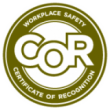
“MY SEWER HAS BACKED UP IN MY HOME – WHAT DO I DO IMMEDIATELY?”
Be prepared to know how to respond in case of an emergency sewer backup situation.
Sewer water: from toilet backups, clean out and drain backups, water backing up from sinks, vanities, tubs.
Extreme extra precautions need to be taken if a sewer backup occurs. Not only are there the normal risks involved in a fresh water flood: ie. Electricity, slippery surfaces, but there is also a threat to human health.
A consideration has to be assessed whether the building needs to be evacuated. Factors used to make this determination may include, but are not necessarily limited to: contamination location(s), the nature of contamination, obvious indications of high levels of microbiological or chemical contamination and the presence of young children (especially infants and children under age 2) and potentially immune-compromised occupants (those whose immune systems may be weakened by age, illness or medication). It is recommended that customers consult health professionals about the advisability of any occupant remaining in, or returning to, the structure before restoration is complete.
If you do need to enter the effected area, make sure you have proper protective equipment: water proof rubber boots, Tyvek disposable suits, gloves and respirator or face mask.
1. If you live under a condo corporation, contact the management company so they can contact the following If there is no condo corporation you should call:
2. A plumber to remove the blockage in the drain system.
3. A certified water damage restoration company to attend the extraction, cleaning, de-contamination, drying and restoration.
4. Contact your insurance company to have an adjuster come and report your loss.
A residential loss – the insurance typically covers both the building and your contents.
A loss pertaining to a condominium corporation – your content is typically covered by your personal insurance and the building is typically covered by the condominium corporations insurance.
5. If you can stop the migration of sewer and remove items of value before the sewer gets to them, you should do so. Make sure you have protective equipment on when entering these areas.
NEXT: FAQ & WHAT THE “STANDARDS” & INDUSTRY PROFESSIONALS SAY >>

![]()
![]()
![]()
![]()


“MY SEWER HAS BACKED UP INTO MY HOME – WHAT TO DO IMMEDIATELY?”
F.A.Q. & WHAT THE “STANDARDS” AND INDUSTRY PROFESSIONALS SAY
HOW MAGICLEAN DRIES DECONTAMINATES AND RESTORES A SEWER BACKUP LOSS
Magiclean Disaster Restoration 23 1/2 Hour Service
(403) 229-3323
#200 – 2408 10th Ave SW – Calgary AB, T3C 0K
Magiclean Disaster Services is part of
The Legacy Group of Companies

